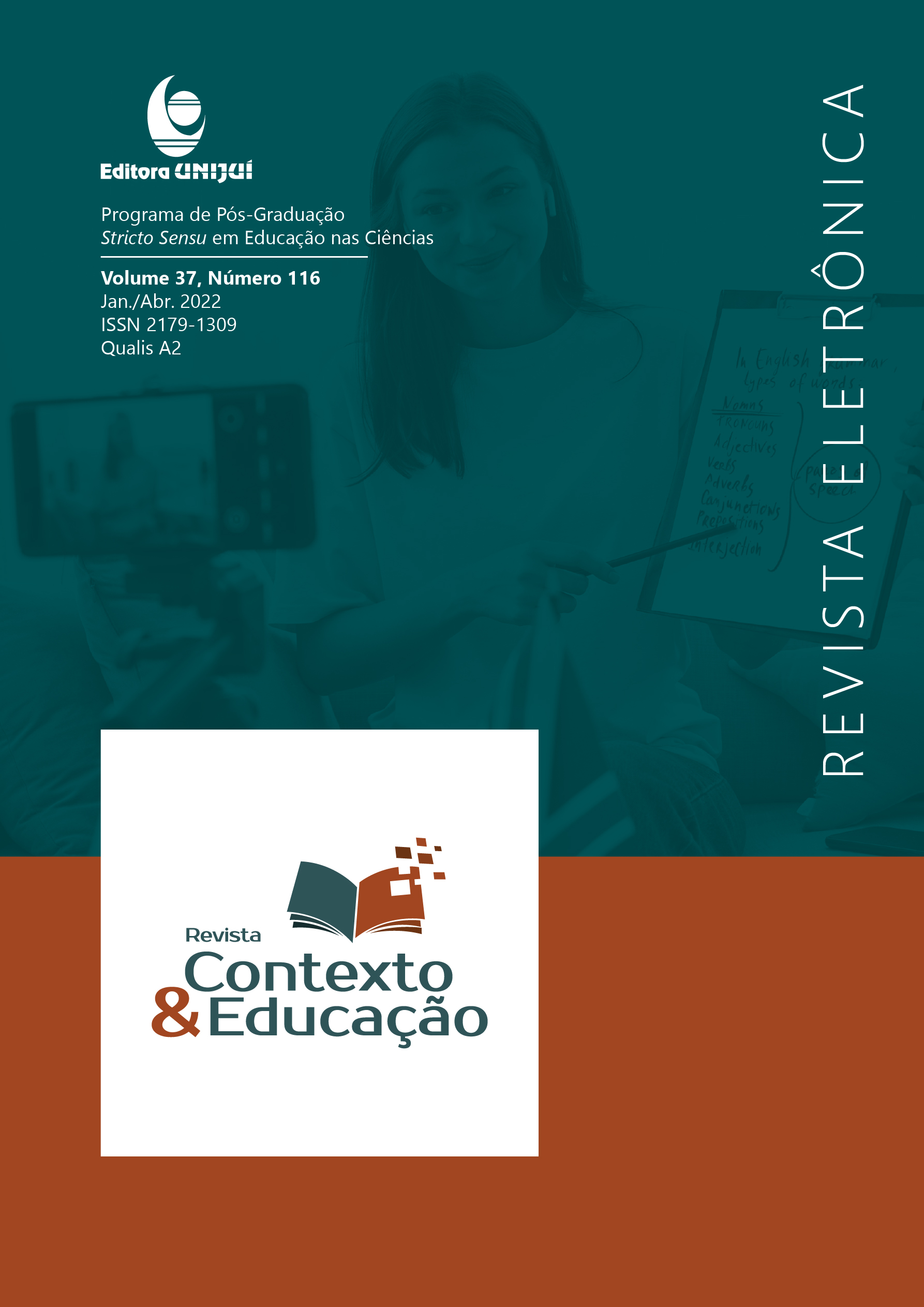THE IMPORTANCE OF INITIATION TO TEACHING FOR THE CONSTRUCTION OF KNOWLEDGE RELATED TO TEACHING PRACTICE
INITIATION TO TEACHING: IMPORTANCE OF BUILDING KNOWLEDGE RELATED TO TEACHING PRACTICE
DOI:
https://doi.org/10.21527/2179-1309.2022.116.12695Keywords:
PIBID, Teaching knowledge, Teacher training, GraduationAbstract
The objective of this study was to analyze the teaching knowledge built during the activities developed by alumni of the Institutional Scholarship Program for Initiation to Teaching (PIBID) in the subproject "PIBID Biologia-Alegre" of the Center for Exact, Natural and Health Sciences (CCENS) of the Federal University of Espírito Santo (UFES). The research has a qualitative character, characterized by a case study. The data collection was carried out through questionnaires and semi-structured interviews, and the information was analyzed through content analysis, from four categories: professional training knowledge, curricular knowledge, disciplinary knowledge and experiential knowledge. The respondents reported formative experiences during the participation in PIBID that enabled the construction of knowledge inherent to teaching practice and the redefinition of concepts and aspects related to teaching know-how, based on their experience in the classroom. Still, the construction of this knowledge made it possible to understand activities that help the function, such as planning and organization; use of different methodologies and resources; contextualized curricular and scientific knowledge and interaction with students and other subjects that make up the school environment. Therefore, it is concluded that the PIBID helps the teaching practice, characterizing itself as a formative space for the construction and development of essential teaching knowledge for the profession.
Downloads
Published
How to Cite
Issue
Section
License
By publishing in Revista Contexto & Educação, authors agree to the following terms:
All works are published under the Creative Commons Attribution 4.0 International License (CC BY 4.0), which allows:
Sharing — to copy and redistribute the material in any medium or format;
Adaptation — to remix, transform, and build upon the material for any purpose, even commercially.
These permissions are irrevocable, provided that the following terms are respected:
Attribution — authors must be properly credited, a link to the license must be provided, and any changes made must be indicated.
No additional restrictions — no legal or technological measures may be applied that legally restrict others from doing anything the license permits.
Notices:
The license does not apply to elements that are in the public domain or covered by legal exceptions.
The license does not grant all necessary rights for specific uses (e.g., image rights, privacy, or moral rights).
The journal is not responsible for the opinions expressed in the articles, which are the sole responsibility of the authors. The Editor, with the support of the Editorial Board, reserves the right to suggest or request modifications when necessary.
Only original scientific articles presenting research results of interest that have not been previously published or simultaneously submitted to another journal with the same purpose will be accepted.
Mentions of trademarks or specific products are intended solely for identification purposes and do not imply any promotional relationship by the authors or the journal.
License Agreement (for articles published from October 2025): Authors retain the copyright to their article and grant Revista Contexto & Educação the right of first publication.


